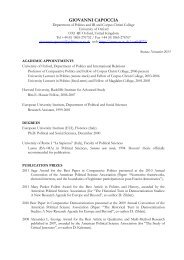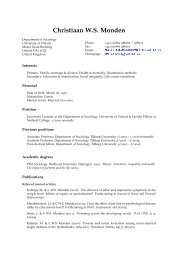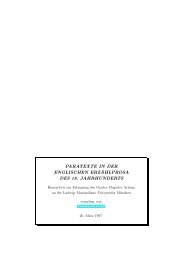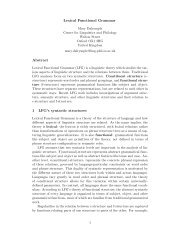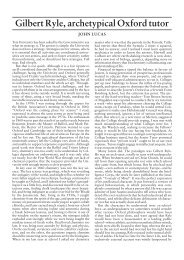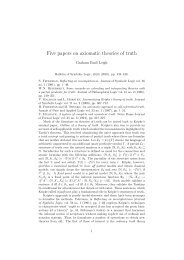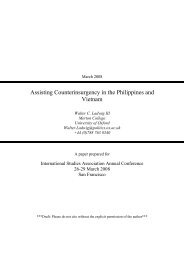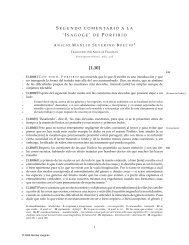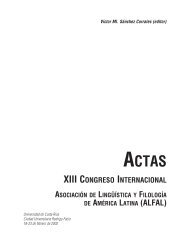Judiciary laws – timeline
Judiciary laws – timeline
Judiciary laws – timeline
You also want an ePaper? Increase the reach of your titles
YUMPU automatically turns print PDFs into web optimized ePapers that Google loves.
G. Kantor 10/2010<br />
149. Lex Calpurnia de repetundis <strong>–</strong> first standing court established. Senatorial juries.<br />
Between 149<strong>–</strong>123. Lex Iunia de repetundis <strong>–</strong> known only from a reference in the<br />
epigraphic extortion law, content unknown.<br />
137. Lex Cassia tabellaria establishes secret ballot in the iudicia populi (except those for<br />
perduellio).<br />
123 (probably early in the year). Gracchan lex ne quis iudicio circumueniatur establishes<br />
a penalty for ‘conspiracy to divert the course of justice’ for senators only (still in<br />
force in the same form at the time of Cic., Cluent. 151). Presumably, equestrian<br />
participation in the juries not yet contemplated by Gaius Gracchus at this stage.<br />
Later incorporated into the lex Cornelia de sicariis of 81. Special standing court<br />
perhaps not established.<br />
123. Lex Sempronia de capite ciuis Romani forbids execution of Roman citizens iniussu<br />
populi (this is not in the later period construed to apply to quaestiones, which<br />
were created by a law of the Roman people, though actual death punishment falls<br />
out of use, and was perhaps seen as inappropriate in the absence of actual popular<br />
decision).<br />
123 or 122 (Gracchus’ second tribunate). Lex Acilia de repetundis (Cic., Verr. 1.51 for<br />
the title) = epigraphic law of the Tabula Bembina (RS no. 1) = Gracchan law.<br />
Equestrian juries. Whether there was a separate lex Sempronia iudiciaria<br />
(covering private law judges and other quaestiones, if any existed at that date)<br />
remains debatable.<br />
121. An ‘emergency decree’ (so-called senatus consultum ultimum, cf. Caesar, Civil War<br />
I.5 for the origin of the expression) is passed by the consul L. Opimius against<br />
Gaius Gracchus and his supporters. An exemption from the lex Sempronia de<br />
capite ciuis is later claimed for murders during its operation, a precedent used a<br />
number of times in the later period, notably by Marius in 100 and Cicero in 63.<br />
116. Gaius Marius is tried for ambitus by a quaestio (Plut., Marius 5.3), perhaps specially<br />
established for that purpose, rather than a standing court.<br />
2



